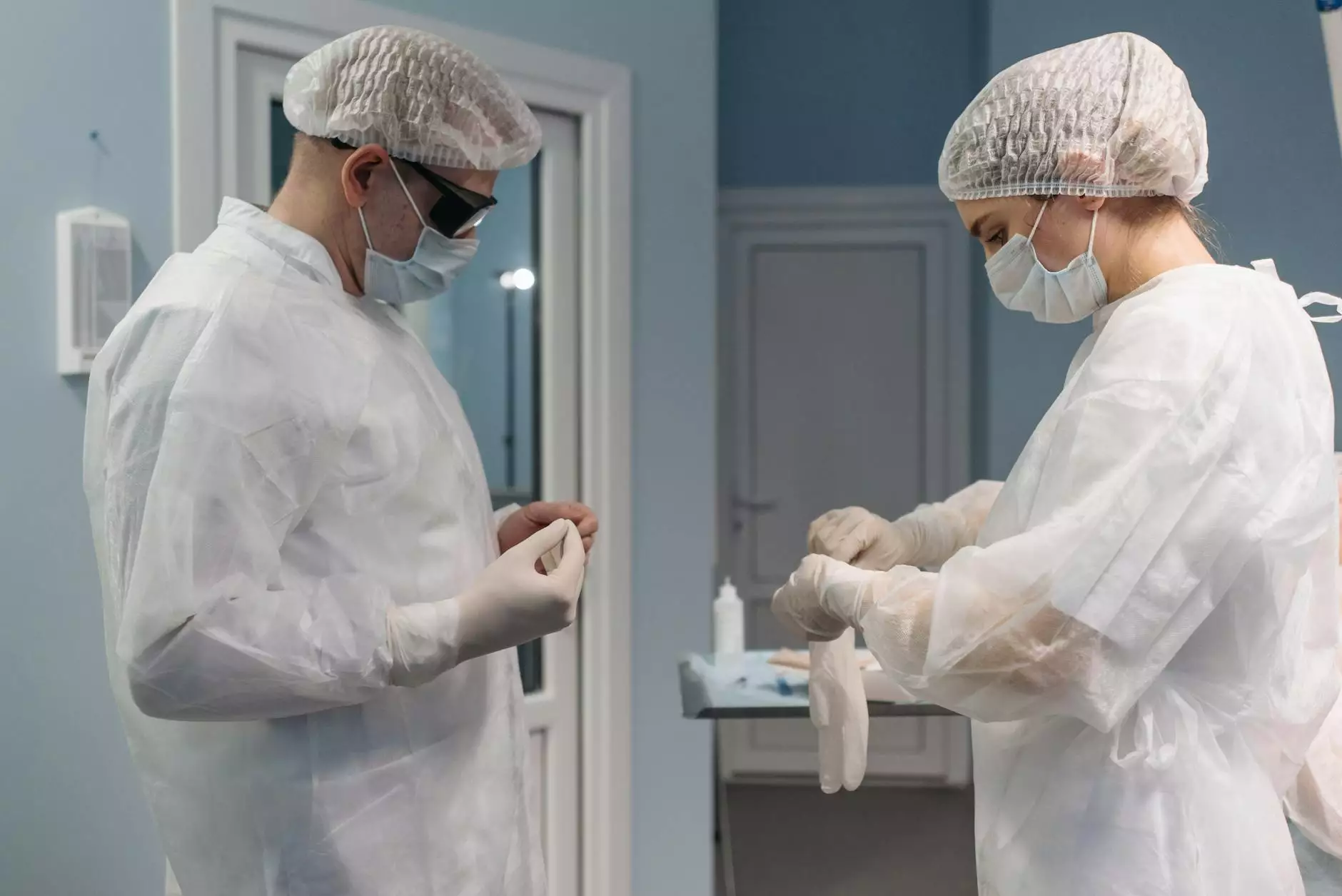Understanding Stomach Cancer Treatments: Comprehensive Guide

Stomach cancer, also known as gastric cancer, is a significant health concern that affects thousands of individuals every year. As the fourth most common cancer worldwide, understanding the various stomach cancer treatments available is crucial for patients and their families. This comprehensive guide will delve into the spectrum of treatment options, discussing their effectiveness, associated risks, and the most current advancements in the field.
What Is Stomach Cancer?
Stomach cancer originates in the lining of the stomach and can spread to other parts of the body if not detected early. The signs and symptoms may include persistent stomach pain, indigestion, loss of appetite, and weight loss among others. Early diagnosis is key to effective treatment, making awareness and understanding of symptoms valuable.
Diagnosis of Stomach Cancer
Before discussing stomach cancer treatments, it’s essential to understand how the disease is diagnosed. Various diagnostic procedures may include:
- Endoscopy: A thin tube with a camera is inserted into the stomach to look for abnormal growths.
- Biopsy: During endoscopy, a sample of stomach tissue may be taken for testing.
- Imaging Tests: CT scans, MRIs, and X-rays help to determine the extent of cancer spread.
- Blood Tests: To check for anemia or other health markers that may indicate cancer.
Types of Stomach Cancer Treatments
There are several approaches to treating stomach cancer, and the choice depends on the cancer stage, location, patient's health, and preferences. Let's explore the primary types of stomach cancer treatments:
1. Surgery
Surgical intervention is often the first line of treatment for stomach cancer and can be curative in the early stages. Types of surgical procedures include:
- Partial Gastrectomy: Removal of a portion of the stomach.
- Total Gastrectomy: Complete removal of the stomach.
- Lymph Node Removal: Removal of nearby lymph nodes to prevent cancer spread.
Post-surgery, patients may require nutritional counseling as changes in the digestive system can affect eating habits and nutrition.
2. Chemotherapy
Chemotherapy involves the use of powerful drugs to kill cancer cells. It can be administered before surgery (neoadjuvant chemotherapy) to shrink tumors or after (adjuvant chemotherapy) to reduce the risk of cancer returning.
Common side effects include nausea, hair loss, fatigue, and risk of infection. It’s essential for patients to discuss potential side effects and ways to manage them with their healthcare team.
3. Radiation Therapy
Radiation therapy uses high-energy rays to target and kill cancer cells. It is often used in combination with chemotherapy or as palliative care to relieve symptoms in advanced cases of stomach cancer.
Side effects can include skin irritation, fatigue, and difficulty swallowing. The goal is to maximize cancer treatment efficacy while minimizing discomfort for the patient.
4. Targeted Therapy
Targeted therapy is an innovative approach that focuses on specific abnormalities within cancer cells. These treatments can halt the growth and spread of cancer by blocking the signals that promote its survival.
This type of therapy often has fewer side effects compared to traditional chemotherapy, making it a preferred option for many patients.
5. Immunotherapy
Immunotherapy helps the immune system recognize and fight cancer cells more effectively. This treatment has shown promise in patients with advanced stomach cancer, particularly those whose tumors express certain proteins.
Immunotherapy generally causes fewer side effects than chemotherapy or radiation; however, its efficacy can vary greatly among individuals.
Combination Treatments
Often, doctors recommend a combination of different treatments for maximum effectiveness. A common regimen could include surgery followed by chemotherapy and radiation, tailored to each patient's needs.
Clinical Trials: A Path to New Treatments
Clinical trials play a crucial role in advancing stomach cancer treatments. They not only provide access to new therapies but also help researchers learn more about how to manage the disease effectively. Patients interested in clinical trials should consult with their oncologist to explore available options and eligibility criteria.
Supportive Care and Quality of Life
Treatment for stomach cancer can be physically and emotionally taxing; thus, supportive care is essential. This includes:
- Nutritional Support: Consulting with a dietitian to manage dietary changes post-surgery.
- Pain Management: Necessary medications and therapies to control pain during treatment.
- Psychosocial Support: Counseling and support groups to help cope with emotional challenges.
- Physical Rehabilitation: Programs to regain strength and mobility post-surgery.
The Importance of a Multidisciplinary Approach
Managing stomach cancer requires a multidisciplinary team, including oncologists, surgeons, radiologists, nutritionists, and mental health professionals. This collaboration ensures a comprehensive care plan tailored to each patient's unique situation.
Dealing with Side Effects
Understanding potential side effects is critical for patients undergoing stomach cancer treatments. Strategies to cope include:
- Medication: Over-the-counter and prescription drugs can help manage nausea, pain, and other symptoms.
- Complementary Therapies: Practices like acupuncture, yoga, and meditation can alleviate anxiety and promote relaxation.
- Hydration: Ensuring adequate fluid intake is vital for overall health and recovery.
Looking Towards the Future: Innovations in Stomach Cancer Treatments
Research is ongoing in the field of stomach cancer, with promising breakthroughs in personalized medicine, which aims to tailor treatments based on genetic and molecular characteristics of each individual's cancer. Advancements in technologies such as liquid biopsies and nanotechnology also show potential for early detection and targeted treatment.
Conclusion
Navigating stomach cancer can be daunting; however, understanding the various treatment options available empowers patients and their families to make informed decisions. By staying updated on the latest treatment developments and engaging with healthcare professionals, patients can take an active role in their treatment journey. The landscape of stomach cancer treatments continues to evolve, and with ongoing research, there is hope for enhanced therapies and improved outcomes for those affected by this challenging disease.
Contact Us for More Information
If you or a loved one requires more information about stomach cancer treatments, visit oncologicalsurgery.net for detailed resources, support options, and to connect with expert professionals in the field.









